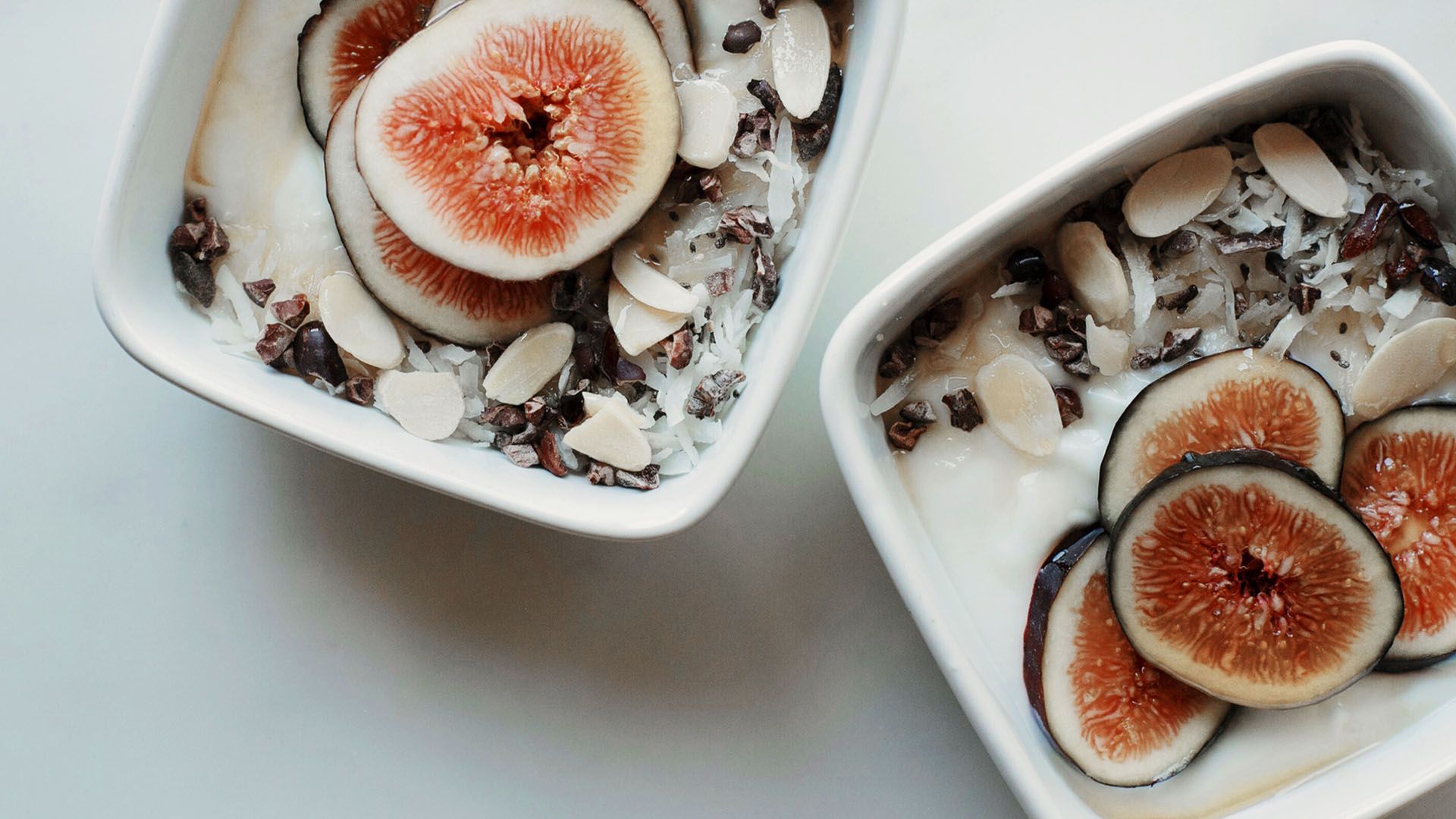Exercise is key for keeping your body strong, but you also need the right fuel to maximize muscle growth and recovery. Nutrition plays a vital role in providing the necessary building blocks for both the strength and the energy you need to actually perform exercise.
No matter where you are on your fitness journey, knowing which nutrients will best fuel your muscles will make your workouts more effective and help you reach the goals you’ve set for yourself. By incorporating muscle-building foods into your daily meals, you can support your body’s processes, increase strength, and enhance your overall athletic performance.
Here’s why nutrition matters when you’re trying to build and maintain muscle, along with some of the most important expert- and research-backed foods that will help you support your fitness goals.
How Nutrition Supports Physical Activity and Muscle Building
What you eat plays a major role in how your body functions. Food is fuel — it can determine how much energy you have and how much muscle you’re able to build.
“Nutrition and physical activity are like the ultimate power couple,” says registered dietitian Kieran McSorley, COO of Brentwood Physio in Calgary, Canada, who spoke with DailyOM for this article. “Whether it’s pre-workout snacks, post-workout meals, or keeping hydrated, good nutrition is your secret weapon for crushing your fitness goals.”
“To prevent the body from burning hard-earned muscle, prior to a workout you should have carbohydrates and protein — the carbs will become readily available energy.”
He explains that your body needs a variety of nutrients to optimally function. “Carbohydrates provide energy to power through your day — or a workout — while protein helps repair and build those muscles,” McSorley says. “Don’t forget about healthy fats for overall energy, and vitamins and minerals to keep your body functioning like a well-oiled machine.”
While it may sound like a lot to think about, eating a variety of whole foods and minimizing processed and packaged items is a simple way to get more of the nutrients you need. This way, you’re not filling up on foods that may not be as rich in vitamins and minerals. Plus, each person’s diet preferences are different, so picking and choosing the whole foods that work for your lifestyle and values should always come first.
Interested in learning more? Check out 8-Week Whole Body Makeover!
7 Best Foods and Nutrients for Building Muscle
When you’re specifically looking to build muscle, there are a number of nutrients that can help — and many of them are found in foods you likely already eat. Knowing when to eat these foods (and why!) can help encourage you to make more informed choices about what you eat before and after a workout.
1. Lean Protein
Protein is the most important nutrient for building muscle, according to Robert Herbst, a personal trainer, weight loss and wellness expert, and World Champion powerlifter. “Muscle is made of protein and you can’t build a wall without bricks,” he tells DailyOM.
McSorley agrees, reiterating that protein provides the essential building blocks for both muscle growth and repair. (When you lift weights or perform exercise, you create microscopic tears in your muscles, then your cells replicate to repair these tears, which leads to your body forming larger, stronger muscles.) He tells DailyOM that you can get protein from lean meats, poultry, fish, eggs, and plant-based sources like legumes and tofu. However, the two foods he recommends the most are chicken breast and quinoa.
“Chicken breast is a powerhouse for muscle growth. It’s low in fat and packed with essential amino acids,” McSorley says. “Quinoa is also a complete protein source, meaning it provides all nine essential amino acids. It also has fiber, vitamins, and minerals — it’s a tiny nutrient-packed warrior that supports muscle growth and overall health.”
2. Casein
Aside from just protein in general, Herbst recommends eating foods with casein, a slow-digesting protein. “Eating casein-rich foods before bed can ensure that protein is available throughout the night as you sleep to support protein synthesis,” he explains. Since casein is found in milk and dairy products (accounting for roughly 80 percent of total protein), foods like yogurt, cheese, and milk-based smoothies can be great options for a post-dinner snack. There are also vegan casein powder alternatives being developed for those who do not eat animals or animal-derived foods.
3. Carbohydrates
Carbohydrates support muscle growth by providing the energy your body needs to strength-train. When you eat carbs, your body converts them to glycogen, Herbst explains, which is a complex carbohydrate that’s stored in the liver and muscles and provides that energy.
“To prevent the body from burning hard-earned muscle, prior to a workout you should have carbohydrates and protein — the carbs will become readily available energy,” he says. “After exercise, you should also have carbs to replenish the glycogen that was burned and to fuel muscle repair and growth.”
Herbst suggests eating peanut butter, which contains both protein and fat, on a banana, which is high in carbs, or a fruit and whey protein smoothie.
4. Calcium
Calcium is a key nutrient for muscle growth as it’s responsible for triggering muscle contraction, McSorley notes. When you increase your intake of calcium, you actually improve the nerve impulses from your brain to your muscles, meaning that your muscles will have an easier time working efficiently.
McSorley recommends eating Greek yogurt for an easy source of calcium. “Not only is Greek yogurt creamy and delicious, but it’s also a fantastic source of both protein and calcium,” he says. If you don’t eat dairy, other calcium-rich options include oranges and cooked broccoli.
5. Omega-3 Fatty Acids
Matt Claes, head coach and founder of Weight Loss Made Practical, tells DailyOM that omega-3s can be helpful for building muscle, especially for older individuals. He points to a 2020 study of older people that showed taking omega-3 supplements contributed to muscle mass gain and improved walking speed. While the study focused on people who took supplements, omega-3s can also be consumed through food, such as various kinds of seafood (sardines, oysters, salmon), and nuts and seeds like walnuts and chia seeds.
6. Magnesium
Studies show that taking magnesium supplements may enhance glucose uptake — the process by which glucose is transported into cells — and limit the buildup of lactic acid in your muscles, which can cause muscle fatigue and cramping. Eating foods that are rich in magnesium (nuts, seeds, and dark chocolate, for instance) can be helpful for recovery so that you can continue to train and build muscle, rather than get sidelined by discomfort.
Research also shows that magnesium can help you sleep better — and better sleep can help with post-workout recovery and overall wellness.
7. Fiber
Finally, fiber is an important nutrient for overall health and muscle growth. Research in people over age 40 shows that eating a diet high in fiber can increase lean muscle mass and strength. While more studies are needed in this area, researchers believe that a high-fiber diet can help stabilize the gut microbiome to improve metabolism as well as the body’s ability to regulate blood sugar.
McSorley points out that eating fiber-rich foods can also help show off your sculpted muscles by helping you lose weight, if that’s something you’re working toward. “Fiber-rich foods like fruits, vegetables, whole grains, and beans keep you feeling full and satisfied while being lower in calories,” he explains.
The Bottom Line
Adding these foods and nutrients to your diet can make an impact on your body’s ability to build muscle. But remember, it’s most important to maintain a healthy relationship with food and your body. If you find yourself stressing over how many grams of protein you’re eating or realize that the conversation you’re having with yourself about food is mostly negative, it’s time to take a step back and look at the big picture. Food is meant to nourish our bodies, not become a means to control the way we look.

